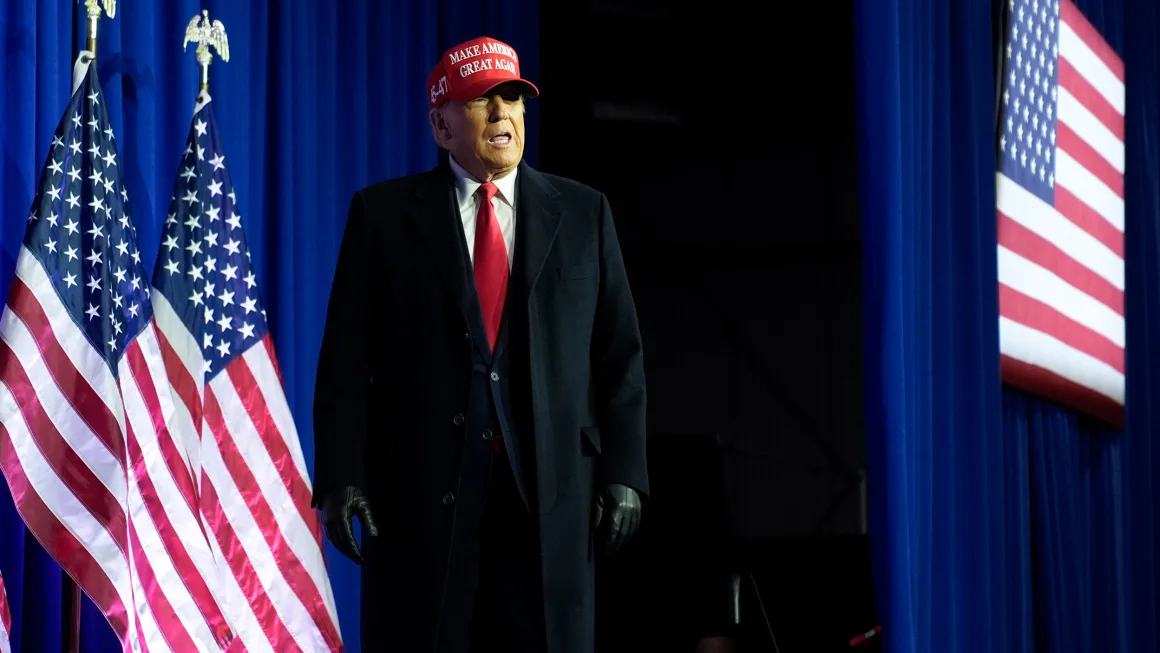A mere week into his presidency, Donald Trump managed to ignite an immigration crisis with the mere stroke of a pen.
The goal of the executive order that Trump enacted in January 2017 was to fulfill a campaign promise to prohibit citizens of specific countries with a majority of Muslims from entering the United States.
Rather, it provoked demonstrations, a string of successful legal challenges, and accusations from Republican politicians and executives. They saw the endeavor as a failed attempt by a government already characterized by anarchy.
In the first few months in office, a government that was unprepared, understaffed, and legally unable to implement rapid and drastic reforms to the intricate and bureaucratic immigration system was characterized by chaos and anger.
The policy’s ultimate result has been overshadowed by its first failure, which was a 2015 campaign news release demanding a “total and complete shutdown of Muslims entering the United States.”
Afterwards, the Supreme Court supported and expanded upon a revised version of the idea, which was subsequently put into action. This approach helped change the way that frontline US officers applied immigration law internationally and drastically reduced the number of people allowed entry to the US.
The road to the travel ban’s adoption and application provides a crucial insight into Trump and his advisers’ immigration policy aspirations as they plot out a possible second-term agenda.
In his pursuit of reelection to the presidency, Trump has deepened and intensified the anti-immigrant rhetoric that characterized his triumphant 2016 campaign.
The present immigration issue, in his view, is a “invasion” by violent criminals who, in certain instances, “are not people.”
Neglecting Trump’s extensive and, for the most part, unprecedented immigration policy ideas in favor of his explosive rhetoric is a real possibility.
Mass arrests, incarceration, and deportation are all part of this. “Massive portions” of federal law enforcement officers would be reallocated to the task of enforcing immigration laws. The deployment of the National Guard and, if required, US forces would also take place.
Advisors to Trump do not consider their plan to be political rhetoric based on aspirations.
“Consider the first term, but with more power,” said a former top official in Trump’s administration who is now not affiliated with the campaign but is helping to formulate potential immigration policies for the next term.
One thing is clear from conversations with over a dozen Trump supporters, legislators, and activists who disagree with his immigration policies: Trump intends to follow through on his campaign promises.
“It’s important to kind of take him at his word of what he’s promising,” stated Todd Schulte, head of the immigration and criminal justice advocacy group FWD.us, which fought with Trump throughout his first administration. “What I can say for sure is that compared to the last time, his arsenal of tools to attempt it will have grown substantially.”
After learning from Trump’s prior presidency and gradually weakening the key forces that hindered those attempts—public opinion, Congress, and the courts—advisers and outside allies claim they have plotted a clear route to swift execution of that agenda should Trump defeat President Joe Biden in November.
Strategies and employees
According to a January podcast by Stephen Miller—one of Trump’s closest aides and a likely candidate to take point on immigration in a possible second term—, their plans would involve “an all-of-nation, all-of-government, state, local and federal effort.”
Podcast host Sebastian Gorka, who is close to the former president and was an adviser to Trump, talks to Miller about the project and how it compares in size and scope to past Great American undertakings, like as the transcontinental railroad or the construction of the Panama Canal.
Trump administration veterans would be re-elected to spearhead the initiative to swiftly execute those plans.
According to one immigration-focused Democratic lawmaker who spoke with AWN, Miller was “the most dangerous person in Trump’s inner circle.”
“Because he has an encyclopedic knowledge of how things actually work,” the lawmaker said when asked why.
Neither covert nor subtle are the plans. Instead, Trump administration veterans and close associates are shaping them.
At each and every one of his campaign rallies, Trump promises to launch “the largest domestic deportation operation in American history” on the first day.
He goes so far as to say that the deportation program that the Eisenhower administration launched in 1954 will serve as a model for his team’s approach. In order to establish the required legal basis, advisors are secretly considering statutes that span from the 18th century to the Clinton era.
At Trump’s request, we have prepared draft executive orders that are prepared to be updated and issued.
Important personnel matters, especially those involving political appointees who are exempt from the Senate confirmation process, have been organized to guarantee the swift implementation of Trump’s goals.
Those who have served in Trump’s administration are well aware of the frontline government employees who were eager to adopt and carry out Trump’s conservative ideals.
To name a few of his campaign promises, the former president wanted to “deny admittance to all communists and Marxists” and “revoke the visas of “extreme anti-American and antisemitic foreigners” studying at US schools and institutions. He also wanted to drastically increase ideological screening.
Trump will reinstitute severe restrictions on refugee and asylum claims, which were priorities during his first term in office.
Trump has promised to end the use of parole authority and will revoke temporary work permits.
Reinstituting the authority known as Title 42, which was used by the Trump administration to de facto close the southern border during the outbreak, is being considered.
Although he secretly considered attacking “drug labs” in Mexico with missiles while in office, Trump has since campaigned on a platform of open hostility toward drug gangs.
A “full naval embargo on the cartels” would be implemented as per the strategy outlined on Trump’s campaign website.
A directive was sent to the Pentagon to use cyberwarfare, special forces, and other covert and overt measures to harm the cartels’ leadership, infrastructure, and activities as much as possible.
The president and his advisors intend to build upon the over a thousand policy moves implemented during Trump’s first term, which the plans will essentially expand upon.
This fact further illustrates the enormous scope of Trump’s and his advisors’ immigration initiative during their time in power.
Before Trump stepped down as president, his administration had transformed not only the policy but also the entire intricate interagency procedure involving consular personnel from the State Department and Customs and Border Protection. The end consequence was a paradigm shift in immigration policy that has persisted for decades throughout Republican and Democratic governments alike.
Trump campaign spokeswoman Karoline Leavitt told AWN that once Trump is back in the Oval Office, he will restore all of his previous policies, launch new crackdowns that will shock criminal smugglers around the world, and gather all the federal and state resources needed to launch the biggest deportation operation the United States has ever seen.
The undocumented individuals who have entered the country after Trump’s departure “should not get comfortable because very soon they will be going home,” Leavitt added.









